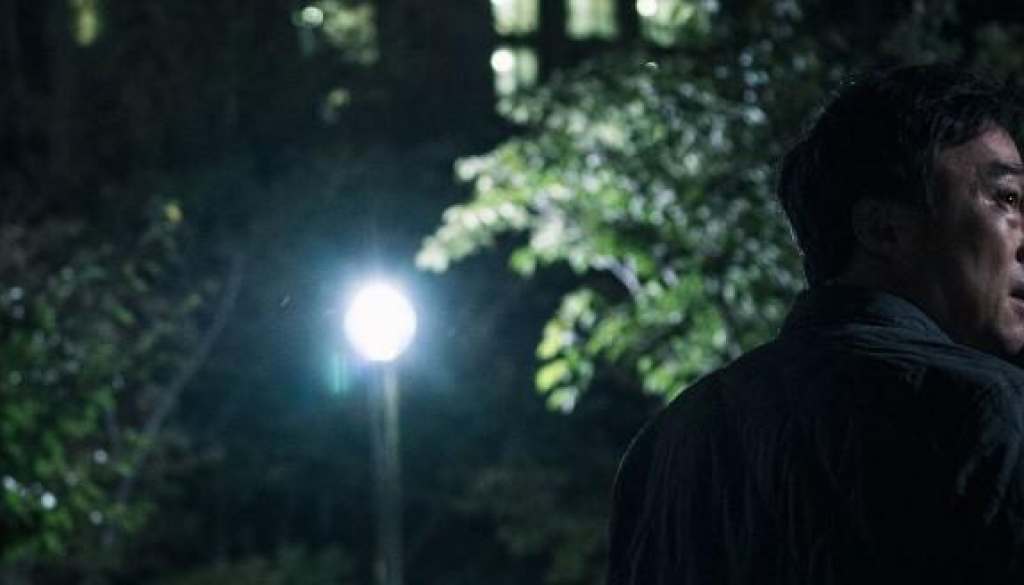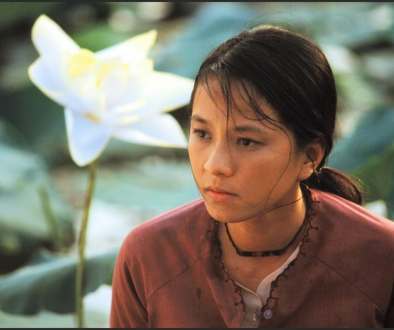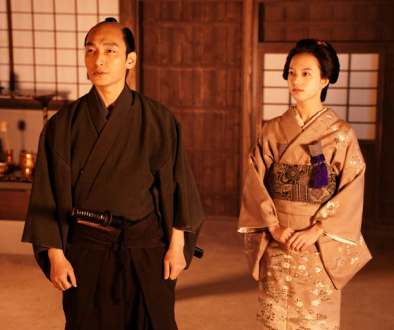LKFF 2018: Cho Kyu-Jang’s THE WITNESS Testifies With An Incriminating Look At Humanity
Jump scares are aplenty going forward without much overkill as director Cho Kyu-jang assures his viewers in an ample first fifteen minutes of his latest summer pic, The Witness. Next to its intriguing introduction, the film wastes no time immersing you in the dark world of our antagonist as his latest victim runs for her life in the dark of night only to end up beaten to death on a residential block – her killer quick to spot who’s watching.
The post-opener sets our film hours before the deadly incident, introducing Sang-Hoon, an ordinary office worker just celebrating the purchase of his home in Gwacheon. Coming home with a drunken stupor, he’s slow to notice the faint, albeit audible cries for help coming from several floors below, just outside his building. A woman is suddenly beaten to death by a baseball cap-wearing killer with a hammer, and while he’s instinctive in calling the police, Soo-Jin (Jin Kyung) his unsuspecting wife turns the lights on, unbeknownst of Sang-Hoon’s panicked demeanor as he rushes to turn the lights off.
Unable to call the police and afraid for his own family’s safety knowing the killer spotted him as well, he turns inward with fear, spending his days hiding what he saw his family, neighbors and local law enforcement. This hasn’t stopped detective Jae-yeob (Kim Sang-ho) from trying to find the killer, even as, at one point, the killer tries using a scapegoat to distract the police. For this, it’s only a matter of time before the killer strikes again, and as he does, Sang-Hoon’s steadfastiness on remaining silent begins to wane on his conscience.
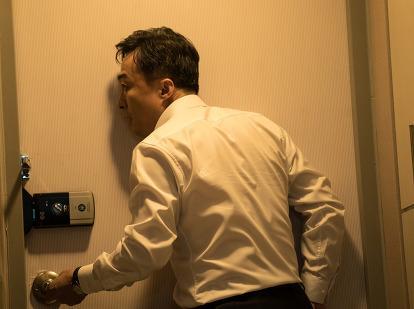
This, coupled with living in an affluent housing community that has prioritized property value and the status quo rather than doing the right thing, brings a stark, chilling air of consequence; The killer has found himself new killing ground, and with the residents gripped in fear and police blindsided by the elusive killer’s every move as he sets eyes on Sang-Hoon’s wife and daughter, it may be up to Sang-Hoon to finally set the example and stop the killer no matter the cost.
The mindset of the residents in wake of the victim’s body being found amid news of the killer is one of the most noticeable and haunting things that grip you as the story unfolds. The story itself is pretty strong as we get to meet a variety of characters, a few of whom actually turn out to have been witnesses to the killer’s actions. There is one particular character we meet in an elevator who claims she heard screams, although when replaying the events in your head as you watch the timeline as shown in the film, you’re kind of left wondering if her character is a clairvoyant of some kind. For her brief time on screen, it’s an interesting addendum for a supporting character.
Most of the performances overall were outstanding for a contained thriller such as this this one. Amidst this, it’s also admirable that this was a third reunion for actors Lee Sung-min and Kwak Si-yang. While their time on screen together in Cho’s The Witness is respite, it doesn’t diminish their performance caliber or the shared motives of Kwak’s role as the killer. Cho’s approach to this character is a simplistic one and easier to understand than realized earlier on as habitual as it is for some directors to contrive some sort of intricate background as to why a serial killer character kills in the first place. Sometimes it works and other times it doesn’t, while in The Witness, much of the focus on the character of Sang-Hoon provides a majority of what the film encompasses in its character study, the treatment of Kwak’s character isn’t too jejune for some tastes and is very much a welcoming factor in the story.
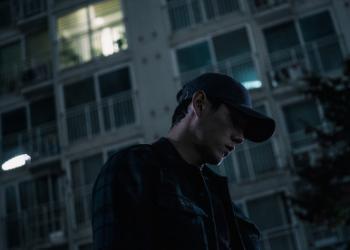
Another of the more striking aspects of the film is the intial lacking chemistry and connectivity between Sang-Hoon and Soo-Jin. With all that happens around them and with Sang-Hoon in a visible state of struggling and thinly-veiled panic – the kind easily readable in the eyes – Soo Jin is all but flippant and dismissive until Sang Hoon’s behavior finally takes a clear and present toll on the family. This happens in certainly one of the most intense moments of the film when Sang-Hoon discovers another body and makes a run to try and phone the police, ensuing another moment of terrible timing, and a grim example of the stranglehold the killer has over Sang-Hoon, principally.
It’s also worth noting the few moments that underwrite Sang-Hoon’s proliferation as an underdog to root for. As Cho’s exploration of the bystander effect takes shape, it feels easy to peg Sang-Hoon as a coward at times and you can’t help but be angry at him a lot of times for holding back at certain moments when you feel he otherwise wouldn’t need to, particularly when confronted by the detective in certain hopefully confiding moments; Jae-yeob is especially fun to watch in a often brilliantly-written character that fights tooth and nail to inspire the residents to help put the pieces together, even as he discovers they’ve been handed a contract by building management to stave off any police looking to ask questions lest it has any negative bearing on the building’s public reputation.
Many facets of the characters are a little irking and ultimately test the patience quite a bit, although they do nonetheless contribute to the story for the most part – some in their own essential way. Soo-Jin gets a lovely little moment of redemption for herself midway in the film in a scene where a distraught husband is confronted by building management and security for posting flyers looking for his missing wife, and that’s just one example. Sang-Hoon’s character evolution is much more of an odyssey at times; his first scene is a mix of unveiling characteristics that invoke both his instinctive bravery and his passive demeanor depending on some situations and exchanges. His fear for his family is the most crippling factor and it can be pretty extenuating much to the chagrin of viewers wishing to see him come out of his myopic shell. He eventually does, and it’s quite admirable and does lend him the kind of badass father of the year appeal one may look for in a protagonist.
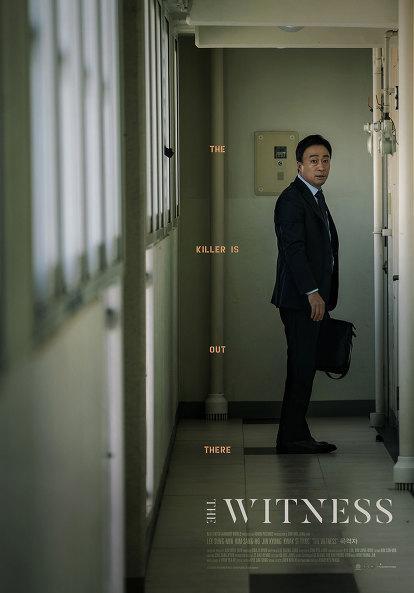
The action scenes and kills are handy with the red stuff when it counts. It’s not all on the level of The Night Comes For Us of late or even that of I Saw The Devil, but don’t fall asleep on Cho’s ability to deliver what’s required for a movie like The Witness. You get your share of visible dead bodies and spilled blood, and the final clash between our reluctant hero and the killer bookends with an especially grisly reveal that brings certain depth to the killer’s seemingly facile motive. The very end of the film suits the narrative in its entirety, marking a pretty testing venture into the gory, gruesome and character defining, and maybe even sets up a paradigm worth highlighting between the psychosis of a killer, and the average consensus of a public bent on inaction in wake of a tragedy.
Cho Kyu-jang’s The Witness can be frustrating at times. The rewards are ample enough that you’re also treated to a cinematic thrill that excites as much as it makes you wanna throw your half-finished can of soda at the screen. The high point of the film sees an adrenaline-inducing confrontation between our cops and the killer, followed by a high-speed car chase with another gripping twist, and much more as all comes to a close, making The Witness a sizeable and strong testimony for the horror crowd to spend a few hours in front of.
The Witness will have its European Premiere at The 13th London Korean Film Festival on November 6 at 21:00 at Picturehouse Central. Click here to book your tickets and visit the official festival website for more information.
Native New Yorker. Been writing for a long time now, and I enjoy what I do. Be nice to me!

